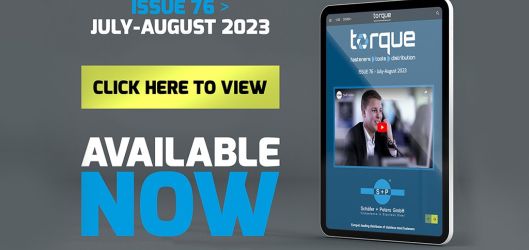
FROM THE EDITOR:
Our latest magazine closes with a great quote from one of the bosses of one of the biggest companies in the fixing world. It’s so good that I’m going to use it again here:
Talking about fischer’s employees, company owner Prof Klaus Fischer says staff are “our company’s greatest asset and most crucial factor for success, rather than our facilities and buildings”. It’s not revolutionary stuff maybe, you’ll have heard variations of it before. But it does deserve dwelling on, coming as it does from the owner of a €1billion-plus company within this industry. It’s also worth connecting the dots between that view and a recurring theme we cover here in Torque Magazine – training, attracting and retaining fresh new talent into the industry and businesses.
Prof Fischer is, I conjecture, using his words to not only tell the rest of the industry about the values of the company he owns, but also taking the opportunity to remind staff that he values them. We hear a lot about the difficulties of recruitment across Europe and beyond, so that’s clearly a wise move.
We also hear a lot about the way that automation is being used to mitigate recruitment difficulties. It’s an interesting point – the more automated your business becomes, and in a time when AI is coming of age, how does that fit in with staff being your greatest asset?
That line of questioning plugs straight into another recurring theme we cover – the continuing importance of relationships in business. We believe in putting plenty of faces in the magazine, and emphasising networking in our trade shows, because business is still done by people. Maybe you like working with a particular person or are happy to spend with a certain company because you feel you can depend on its staff?
Is it a contradiction that the more we become automated and rely on AI, the more we value the human relationships and employees that we see in the office and warehouse around us? Automation is often sold on the basis of freeing up staff from more mundane tasks and allowing them more time to do more valuable and hopefully interesting work, so perhaps it's not so paradoxical after all. Either way, I don’t think there are many that could reasonably disagree with Prof Fischer’s valuation of staff.



